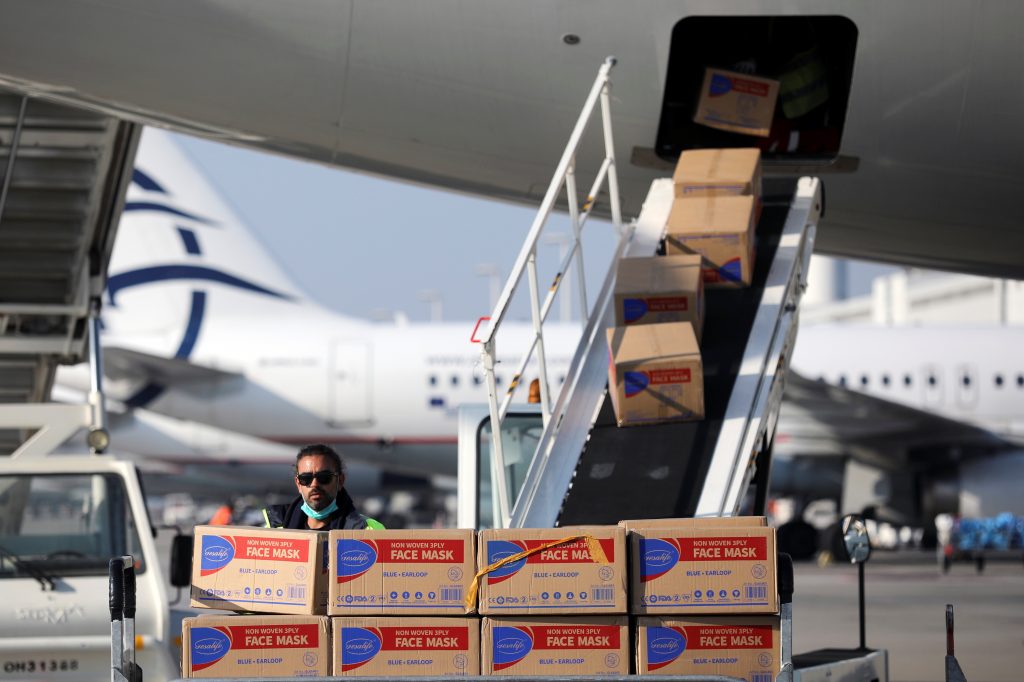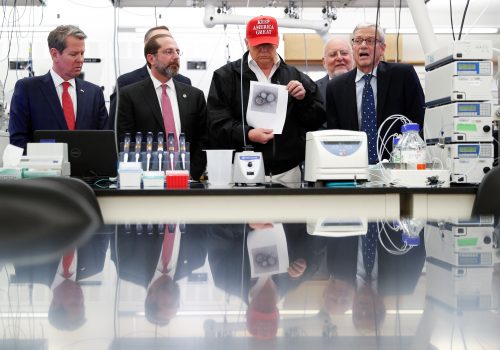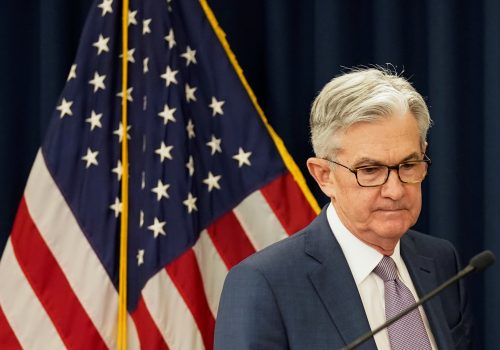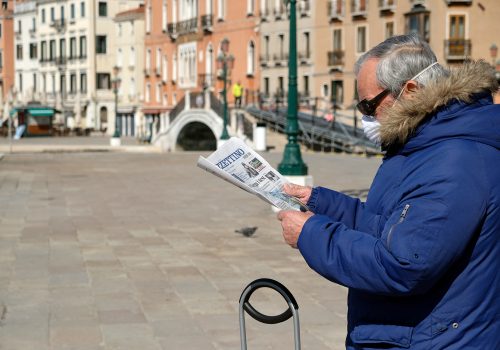The latest plot twist is a stunner in our ongoing global drama, Major Power Struggle in the Era of Coronavirus.
President Xi Jinping, who just days ago seemed to have been put on the ropes by this killer pathogen, appears to have turned the tables on the disease, his critics, and his ideological adversaries. Some initially thought the virus might even cost him his job.
Instead, his authoritarian colossus, the People’s Republic of China, is rapidly leveraging its position of being the first country to emerge from the worst of COVID-19. To be sure, China is still suffering its biggest economic hit since the Cultural Revolution of 1966-1976, with still-incalculable damage to growth, industrial production, and its role in global supply chains.
Yet with head-spinning speed, President Xi is revving up his stalled economy with fiscal stimulus and is tightening the screws of his authoritarian surveillance state with new technologies. He is ramping up a domestic and international publicity campaign, trumpeting his triumph over the virus, and donning the garb of the global champion working to protect others.
Get the Inflection Points newsletter
Subscribe to Frederick Kempe’s weekly Inflection Points column, which focuses on the global challenges facing the United States and how to best address them.
At the same time, Chinese authorities are taking aim at the United States by tossing its top journalists out of Beijing, by wooing American allies from Tokyo and Rome in common cause, and by contrasting its perhaps draconian approach to COVID-19 to that of President Trump.
“China can pull together the imagination and courage needed to handle the virus, while the US struggles,” trumpeted the People’s Daily, the Communist party mouthpiece. Xinhua news agency claimed that Xi’s handling of the crisis has demonstrated his “pure heart, like a newborn’s.”
Pure heart or not, Xi is demonstrating an iron will. This week he stepped up threatening flights near Taiwan, a warning that he won’t abide any move toward independence.
In the latest incident on Monday, Taiwan’s Defense Ministry said it scrambled air reconnaissance and patrol aircraft to drive away Chinese J-11 fighters and KJ-500 early warning aircraft on nighttime missions.
The not-so-hidden message to Washington: we know from our experience how long this virus will drain you and distract you from your external obligations. You also have your messy elections to manage. What better time than now to demonstrate to the world the advantages of China’s system and embrace?
Meanwhile, COVID-19’s epicenter has moved to Europe – where this week Italy surpassed China in the number of fatalities. It has spread in the United States to all fifty states, prompting an economic shutdown that could make the 2008-2009 financial crisis seem mild by comparison.
It’s hard to engage in long-term strategic thinking about the neighborhood when your house is burning. However, the Trump administration needs to do precisely that. U.S. policy makers need to wake up to the geopolitical perils of the coronavirus crisis.
American global leadership has enjoyed a wide measure of acceptance not only because of military power or economic might. It also was perceived by its partners as defending larger, common interests and for convening global coalitions when required.
It was precisely that brand of leadership that characterized the U.S. response to the financial crisis of 2008-2009. Even so, that crisis shattered much of the world’s confidence in the United States’ financial leadership. Mismanaging the coronavirus could accelerate further the end of the American era.
“Beijing understands that if it is seen as leading, and Washington is seen as unable or unwilling to do so,” write Kurt M. Campbell and Rush Doshi in Foreign Affairs, “this perception could fundamentally alter the United States’ position in global politics and the contest for leadership in the twenty-first century.”
The authors in this must-read analysis remind us that global orders change gradually at first and then all at once. “In 1956,” they remind us, “a botched intervention in the Suez laid bare the decay in British power and marked the end of the United Kingdom’s reign as a global power.”
So how do United States policy makers avoid their own “Suez moment?”
My column of last week offered a starting point. It suggested that President Trump, instead of introducing a European travel ban unilaterally March 11, should have triggered NATO’s Article 5 for the second time in history. That is the provision, crafted to deter the Soviet Union, that an attack on one member should be treated as an attack on all.
Overly literal readers of that column argued such a response was either ill-advised because it would militarize U.S. response or impossible, as Article 5 was designed for response to an “armed attack.” What both arguments missed was the symbolic significance of such a declaration, as was the case when Article 5 was triggered by U.S. allies after the 9/11 terrorist attacks.
That’s particularly true given current transatlantic divisions.
Even if NATO could muster such political will, it would still be insufficient. As the current chairman of the G-7, the United States could convene a “Coalition Countering COVID-19” that would rally the seven leading industrial democracies, the European Union, NATO and, perhaps most importantly, the G-20.
It would thus also involve China as a central and collaborative actor against a common foe.
Yet no other country, including China, has the wherewithal to summon that sort of global response. Failing to do so would further erode U.S. legitimacy as a global leader, a position already damaged through trade wars with its allies and the failure to join galvanizing projects from the Trans-Pacific Partnership and the Paris Climate Accords.
The need is all the greater given Europe’s fragmented response even as the virus rages, with the significant exception of European Central Bank President Christine Lagarde’s rallying this week of eurozone central bankers.
“European solidarity does not exist,” Serbian President Aleksandar Vucic said on his national television as he announced his country’s state of emergency. “That was a fairy tale on paper. I believe in my brother and friend Xi Jinping, and I believe in Chinese help.”
We’re only in the opening scenes of this epic COVID-19 drama, which will continue without intermission. The Chinese rebound could prove to be a welcome twist in the plot.
Imagine the far-happier ending, however, if the United States and its global allies manage to join forces globally even as they isolate socially.
This article originally appeared on CNBC.com
Frederick Kempe is president and chief executive officer of the Atlantic Council. You can follow him on Twitter @FredKempe.
MUST-READS FROM A WORLD IN TRANSITION
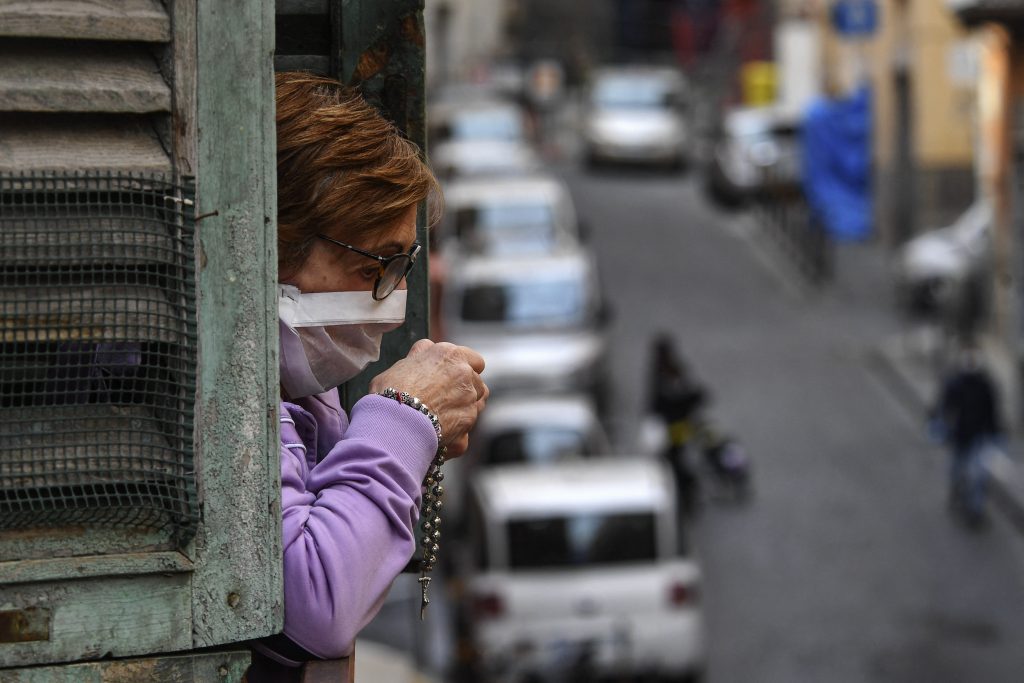
This week’s top reads turn to the experts to help us navigate these disturbing times.
They include Kurt Campbell and Rush Doshi’s Foreign Affairs piece aimed at the geopolitical perils for U.S. leadership, and best-selling author Yuval Hariri’s thought-provoking FT essay on humanity’s two crucial choices. Pulitzer Prize-winning Laurie Garrett delivers a primer in TIME warning Americans to get ready to shelter at home, and Mohamed El-Erian and Annie Lowrey dissect the fastest economic plunge of our lifetimes.
If you’re looking for culture (if not quite an escape from COVID-19), join the quarantined Italian students profiled in Francis Rocca’s WSJ feature, who are studying works inspired by previous epidemics from the 14th to 18th Centuries.
#1. AMERICA’S “SUEZ MOMENT?”
The Coronavirus Could Reshape Global Order
Kurt M. Campbell and Rush Doshi / FOREIGN AFFAIRS
Kurt Campbell, one of America’s most gifted diplomats and Asia experts, and Rush Doshi of Brookings, provide this week’s must-read in Foreign Affairs on the geopolitical perils of COVID-19. They compare it for the U.S. to what the Suez Crisis of 1956 was for British decline.
“As Washington falters, Beijing is moving quickly and adeptly to take advantage of the opening created by U.S. mistakes, filling the vacuum to position itself as the global leader in pandemic response,” write the authors. “Beijing understands that if it is seen as leading, and Washington is seen as unable or unwilling to do so, this perception could fundamentally alter the United States’ position in global politics and the contest for leadership in the twenty-first century.”
But here’s the most useful part of the message:
“Washington can still turn the tide if it proves capable of doing what is expected of a leader: managing the problem at home, supplying global public goods, and coordinating a global response… That leadership will also require effectively cooperating with China, rather than getting consumed by a war of narratives about who responded better.” Read More →
#2. THE EUROPEAN EPICENTER
Yuval Noah Harari: the world after coronavirus
Yuval Noah Harari / FINANCIAL TIMES
“Humankind is now facing a global crisis,” writes Yuval Harari – historian, philosopher and best-selling author of Sapiens: A Brief History of Humankind. “The decisions people and governments take in the next few weeks will probably shape the world for years to come.”
Harari applies his brilliant mind to simplifying humanity’s most important two choices in a riveting essay for the Weekend FT. “The first is between totalitarian surveillance and citizen empowerment,” he says. “The second is between nationalist isolation and global solidarity.”
Any guesses where I and our team at the Atlantic Council come down? Read More →
#3. AMERICA: A WARNING
Sorry, America, the Full Lockdown Is Coming
Laurie Garrett / TIME
American science writer Laurie Garrett, who won the Pulitzer Prize for chronicling the Ebola Crisis outbreak in DRC, writes a primer for TIME on how best to prepare for a months-long siege of an epidemic that will require sheltering at home.
“Politicians won’t admit it yet, but it’s time to prepare – physical and psychologically – for a sudden stop to all life outside your home,” she writes. “…You need to think hard and fast about two crucial questions: Where, and with whom, do you want to spend the next six to 12 weeks of your life, hunkered down for the epidemic duration?” Read More →
#4. MEANWHILE, IN RUSSIA
This Is Not a Recession. It’s an Ice Age.
Annie Lowrey / THE ATLANTIC
The Coming Coronavirus Recession
Mohamed A. El-Erian / FOREIGN AFFAIRS
“No one alive has experienced an economic plunge this fast,” writes Annie Lowrey, economic journalist at The Atlantic. “What is happening is a shock to the American economy more sudden and severe than anyone alive has ever experienced.” Read More →
Writing in Foreign Affairs, Mohamed El-Erian pronounces a global recession, and that’s probably the best news as he describes what the “new, new normal” might look like after COVID-19.
“Deglobalization and deregionalization will accelerate,” he rewrites, “redefining worldwide chains of production and consumption. Public-and private-sector emphasis on cost effective and efficient supply lines will give way to excessive risk aversion and resilience management. And economic tools …will be weaponized more frequently as national security trumps economic concerns.”
As always, effective global collaboration could bend that future more positively. Read More →
#5. “PLAGUE CULTURE”
In Italy, Contagion Has Its Own Canon
Francis X. Rocca / THE WALL STREET JOURNAL
Need a cultural escape from today’s epidemic?
Then how about studying the bounty of art, literature and culture created during previous plagues?
Francis Rocca in the WSJ (accompanied by breath-taking illustrations) reports on how Italian students, quarantined in their homes, are studying works that have described and portrayed local and continental epidemics from the mid-14th to the early 18th century.
After reading Alessandro Manzoni’s classic 19th century novel, “the Betrothed,” capturing the drama of 14th Century bubonic plague, 18-year-old Lucio Marazza reaches the right conclusion. “Manzoni teaches the importance of holding together human relations and the social fabric,” he says. Read More →
Amen.
QUOTE OF THE WEEK
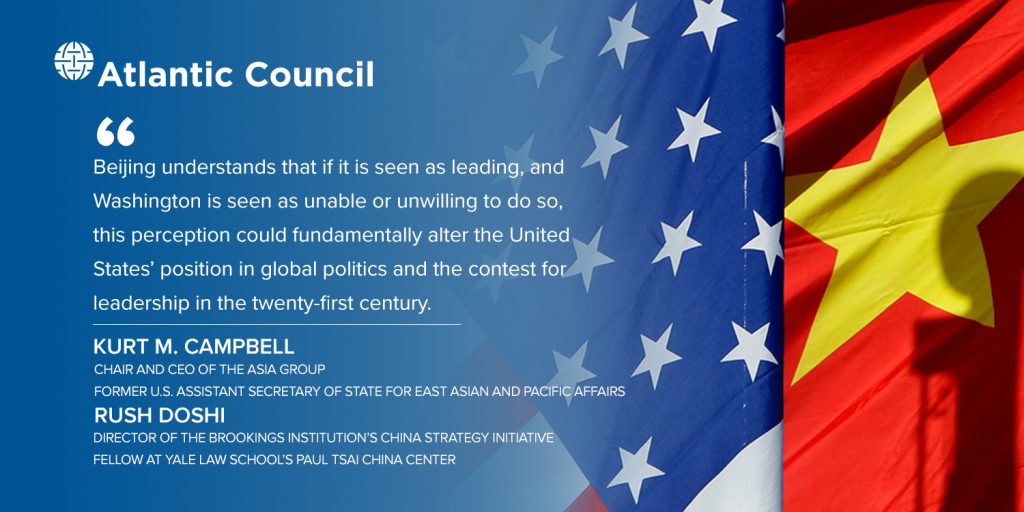
ATLANTIC COUNCIL TOP READS
Image: A worker unloads boxes of protective face masks from an Air China plane carrying medical supplies donated by the Chinese government, in Athens, Greece, March 21, 2020. REUTERS/Alkis Konstantinidis
